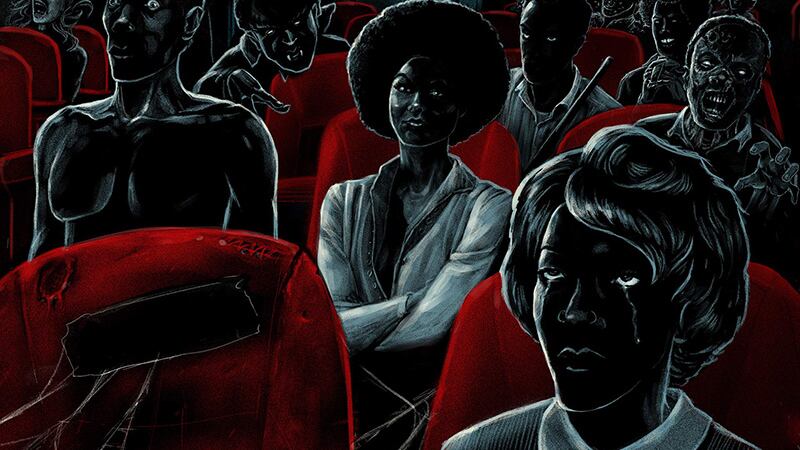Jeff Oliver has far more than 31 reasons to launch a monthlong Instagram project on Black horror films.
The Portland filmmaker is a lifelong devotee of the genre and last fall began writing a horror script inspired by the gentrification of North Portland. Oliver is also the production manager for Open Signal Labs, an incubator program seeking to empower and invest in local Black media makers.
But the new Janelle Monáe-starring film Antebellum was the "nail in the coffin" of Oliver's decision to spotlight one Black horror film each day of October. In Oliver's view, Antebellum depicted little but meaningless, retrograde brutality in the wake of a winding, multidimensional history of Black horror cresting in recent years with Get Out.
"It was as if they were trying to tell people slavery had been bad for the first time," Oliver says of Antebellum. "We're so far past this, in my mind."
Enter the inaugural title and partial inspiration of Oliver's fundraiser: Horror Noire. Oliver calls the 2019 Shudder documentary "mind-blowing" for how it synthesizes an odyssey of Black horror that begins 50 years before Duane Jones' Ben iconically declared himself the "boss" in Night of the Living Dead (1968). On the contrary, Horror Noire, based on the book by Robin R. Means Coleman, first examines The Birth of a Nation in tracing how Black actors have played monsters, sidekicks, symbols, glaring absences and, finally, protagonists in a century of horror films.
"I think it's a phenomenal way to deconstruct these movies we love and their relationship to race," Oliver says. "It's really emotional to have something that you felt for a long time be turned into a film and realize I'm not alone in that way."
While informing and diversifying his followers' Halloween watchlists are a portion of the project, Oliver's end goal is raising $5,000 for local Black media makers. Those efforts fall under the banner of Open Signal's Our Stories Our Lives response fund, which has allocated stipends throughout the summer and fall. The fund has currently raised about one-fifth of its $100,000 goal.
Within his own horror fandom, Oliver can draw a clear connection between DIY filmmaking and representation. George Romero's first two zombie masterpieces, Night of the Living Dead and Dawn of the Dead, unlocked new cinematic concepts for a teenage Oliver: both by casting Black leads and entertaining audiences via minuscule budgets and titanic allegories.
"I could picture myself making those movies [as a teenager]," he says. "Romero was able to mesh social commentary and horror in a way I'd never seen done before."
On that note, Oliver joined us in a lightning interview round on his movie selections for 31 Days of Black Horror.
Your most seen: Definitely Dawn of the Dead. I just rewatched my VHS copy. I'd say it's probably my favorite film ever.
Most purely frightening: Flying Lotus made a film on Shudder called Kuso. I've never been so frightened just by texture. Stuff will be wet and everybody has boils on their face. It's definitely from someone you can tell is a great artist.
Most exciting recent discovery: Sweetheart on Netflix. It's basically Cast Away—a woman on an island. It's maybe the best story of a Black horror film since Get Out, in that when you figure out what the film is doing, I was like, oh, this a #BelieveWomen movie in a way I didn't know you could turn into a plot.
Most cathartic: The People Under the Stairs from Wes Craven. As a kid, I just thought it was gross. As an adult, I was really satisfied by it. It's about a Black kid whose family is about to be evicted from their apartment.
Least heralded title you're excited to recommend: Tyrel (currently on Hulu), though it might be a little controversial as a horror film. It's from this director Sebastián Silva, who's from Chile and did a movie called Magic Magic (2013) that's really good. I'm really interested in the conversation around Tyrel because I would 100 percent call it a horror film, but I think other people, maybe especially white people, may not have the same reaction.
SEE IT: 31 Days of Black Horror is available on Instagram at @thatjeffoliver. You can donate to the Our Stories, Our Lives Black Media Maker Response Fund at secure.givelively.org/donate/open-signal/our-stories-our-lives-black-media-maker-response-fund/jeff-oliver-1.

